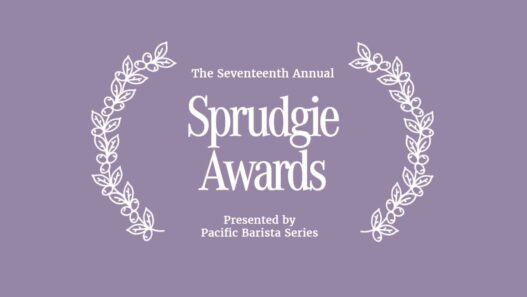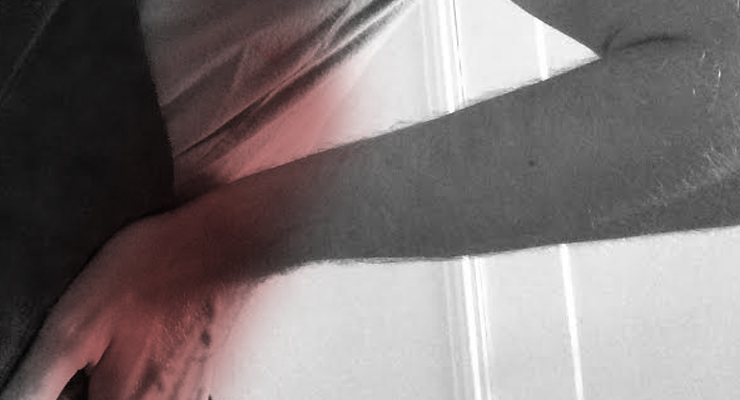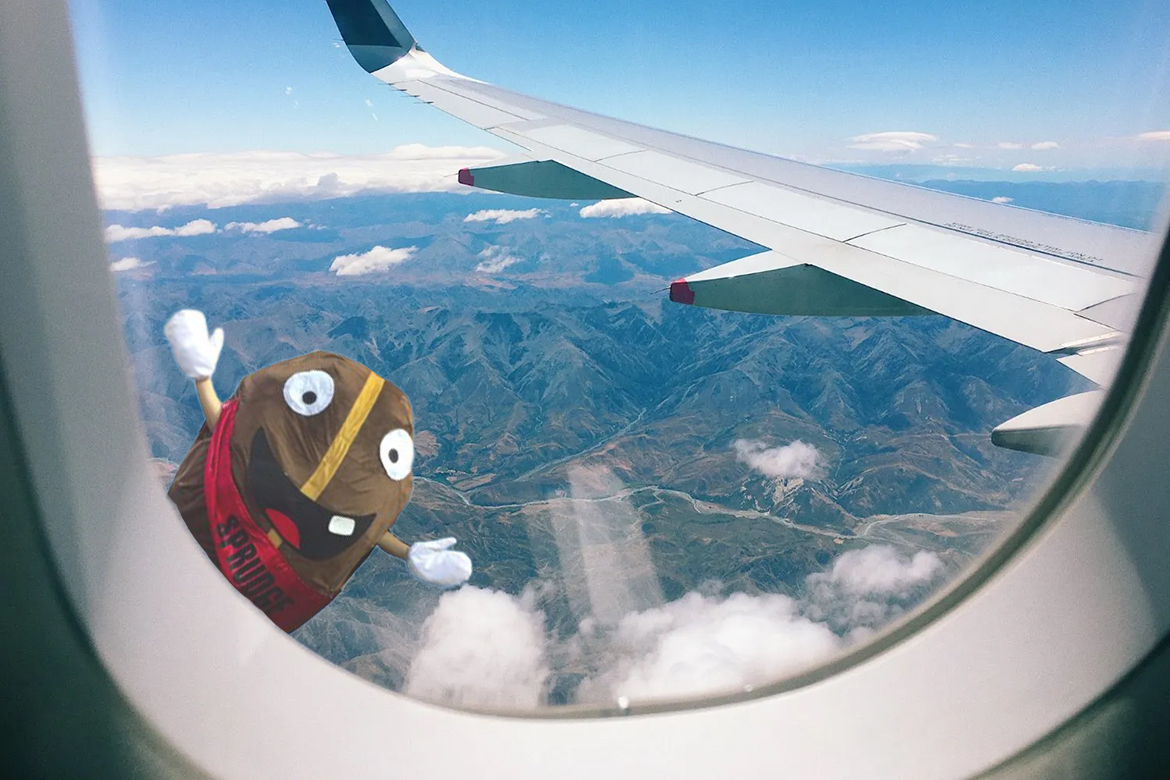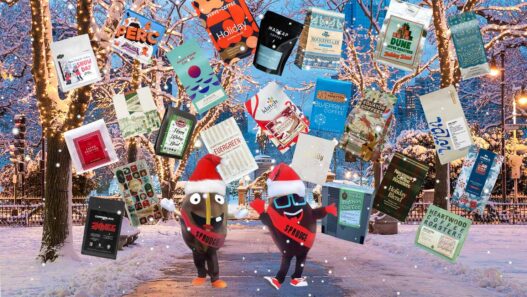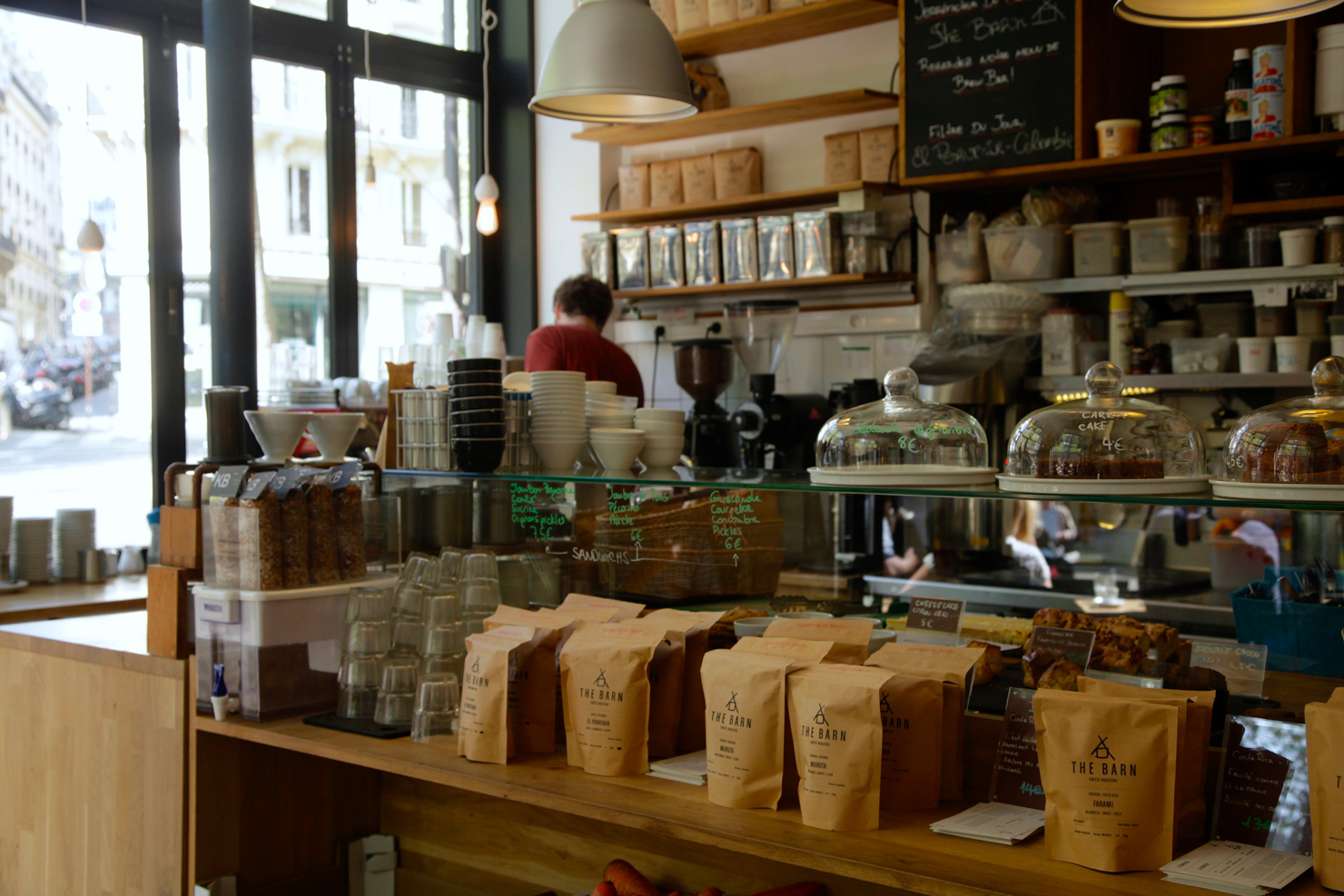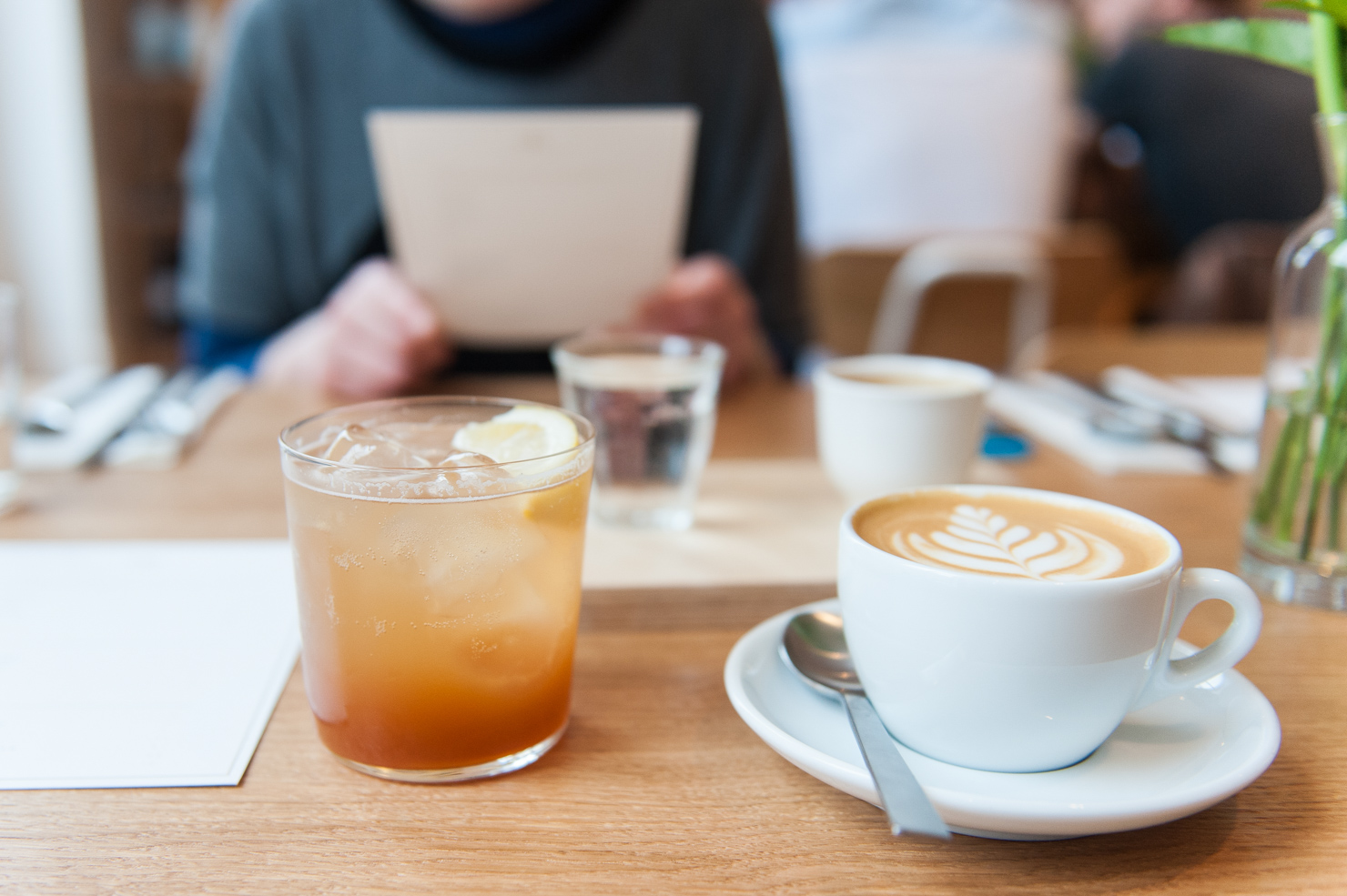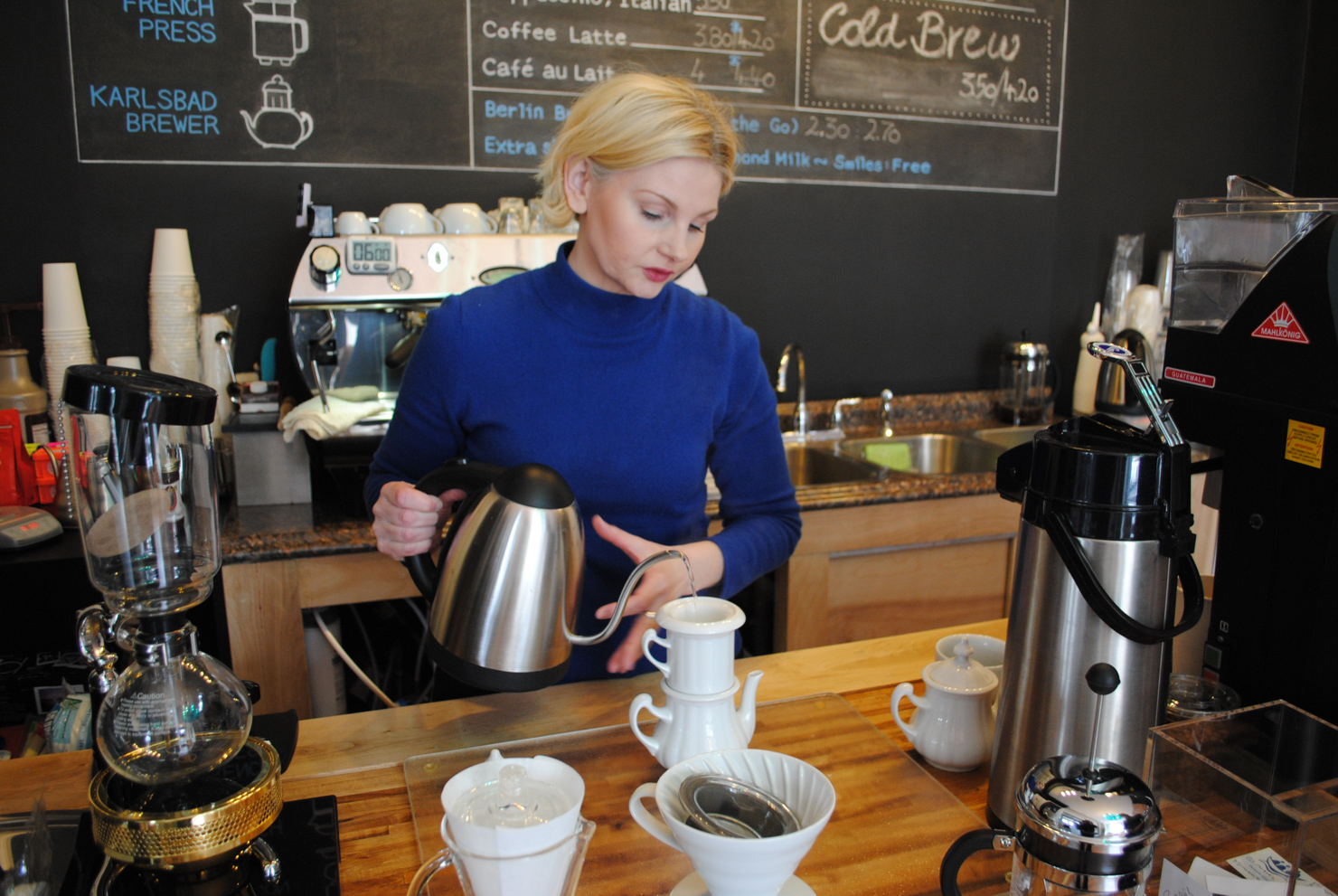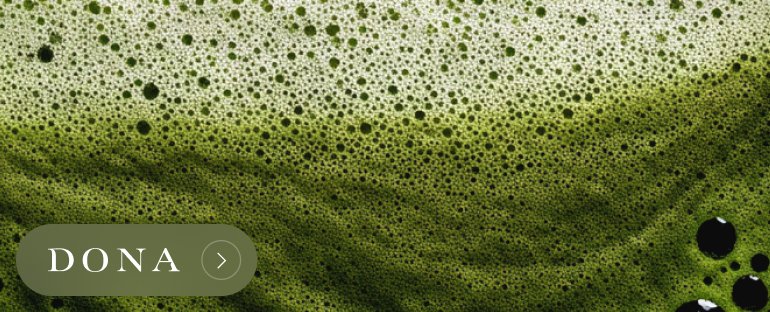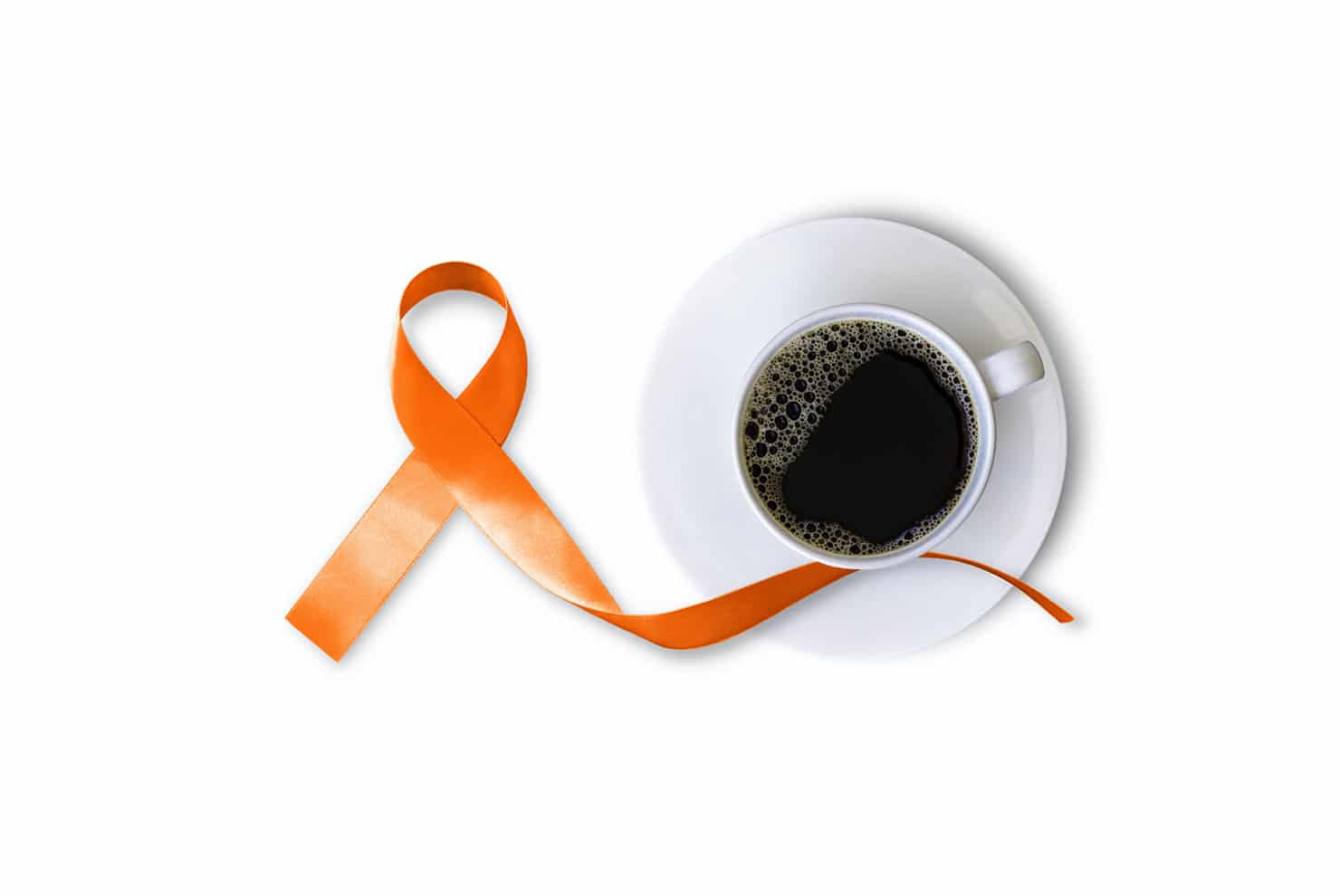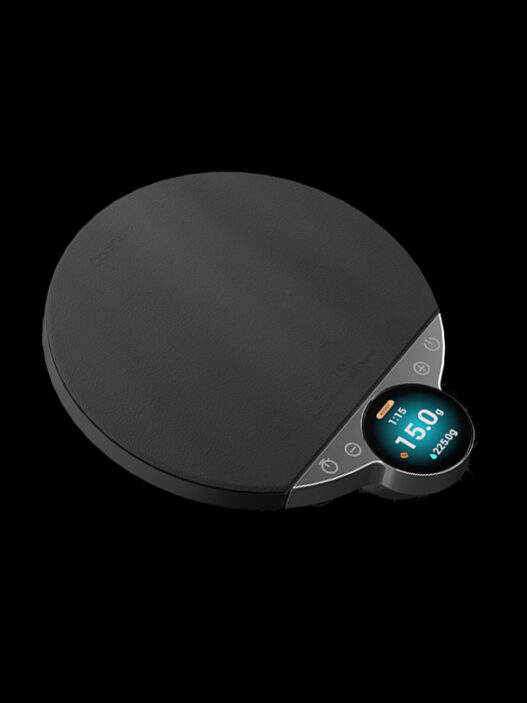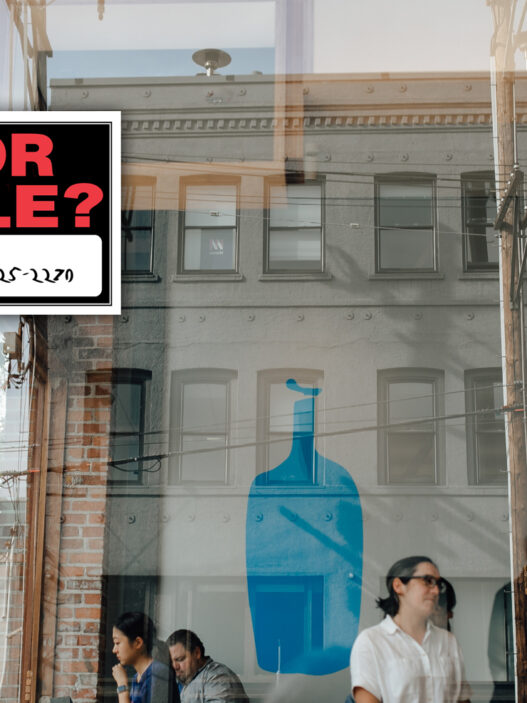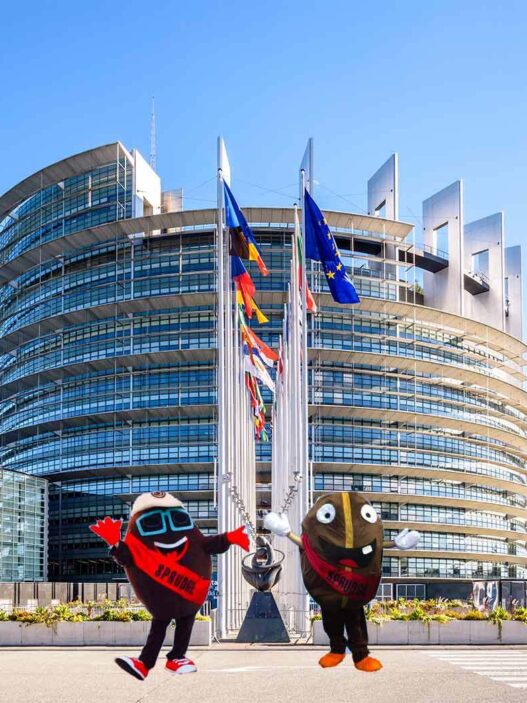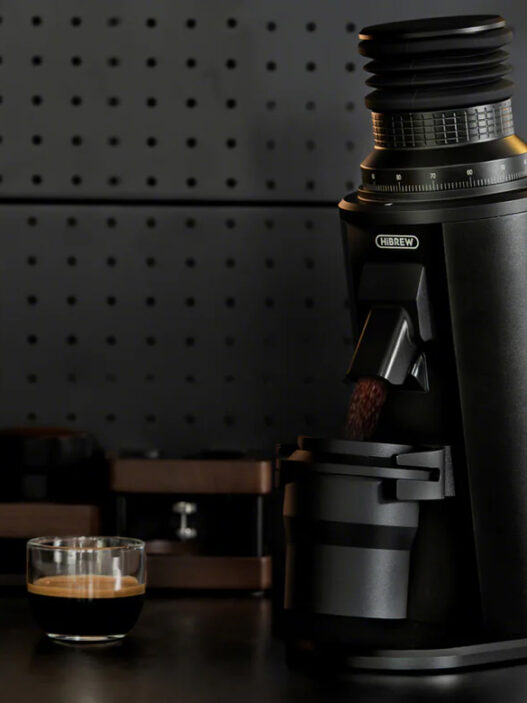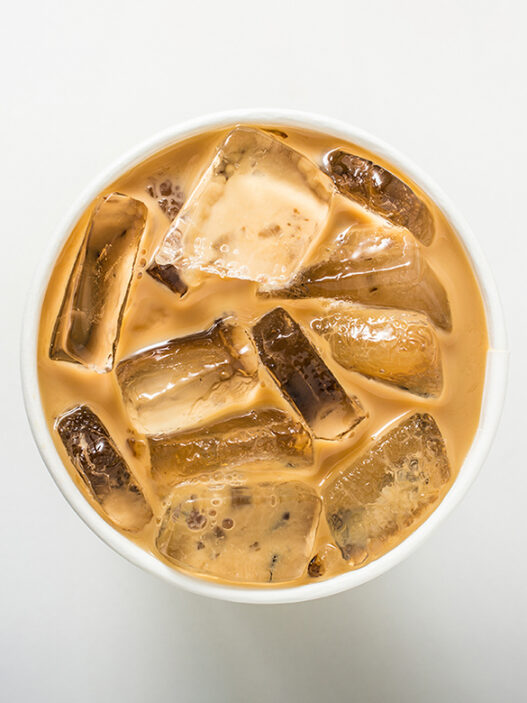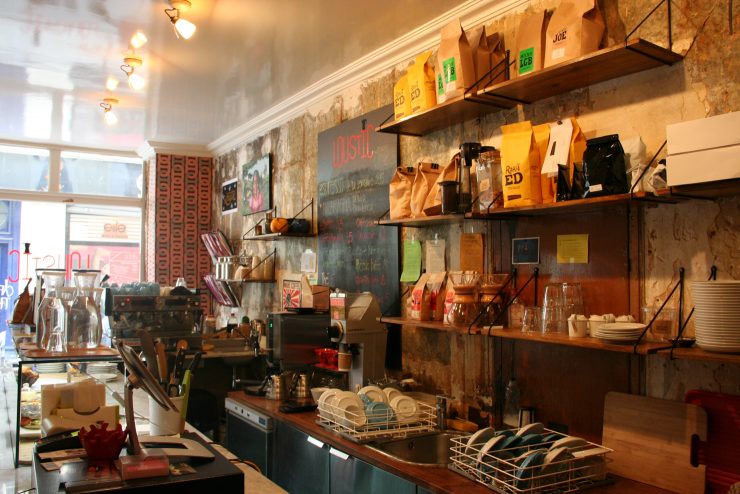
The fashion world looks to Paris to set trends, and the culinary world is in one way or another always connected to the French capital by way of a confit or a coq au vin. Can Paris be the platform, too, for advancing European specialty coffee?
As we’ve watched the Paris specialty coffee scene grow in the last few years, it has become clear this growth extends beyond growing a French specialty-roaster culture. Paris wants to be a part of the European coffee movement as a whole, with many cafes in town featuring roasters from other European countries, either as guest roasters or as a staple offering.
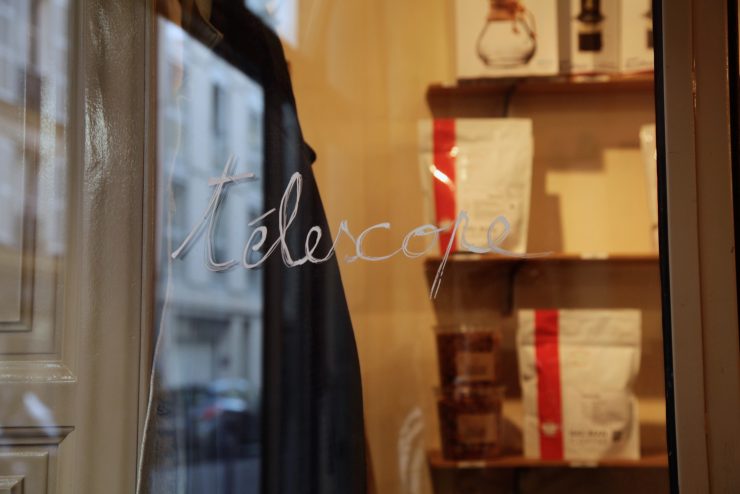
“I function like a wine cellar, offering a selection of the best roasters,” says Nicolas Clerc, the owner of Telescope, one of Paris’ first specialty-focused cafes. Here, the staple beans come from the UK’s Has Bean, but Clerc also circles through a variety of other guest roasters including Coffee Collective, Drop, Tim Wendelboe, Koppi, and Per Nordby. There’s a reason that it is heavy on the Scandinavian countries, Clerc says. “The Nordic countries…are really ahead of us.”
Offering beans from across Europe also allows for a diversity in what people can experience when they visit a Parisian cafe. Cafe Loustic is another cafe that was on the list of Parisian specialty cafes early on, owner Channa Galhenagé setting a model for the many places to open after him. He made the decision to open an espresso bar in 2009, when at the time the only roaster in Paris to source beans from was Cafeotheque. “I read about the owner of Caffènation [Rob Berghmans] and his two cafes in Antwerp, Belgium, in a magazine. There was something appealing about the way he talked about coffee, mixing strict attention to detail with a laid-back experience,” says Galhenagé. While Caffènation wasn’t roasting at the time, the idea of an international collaboration appealed to both sides.
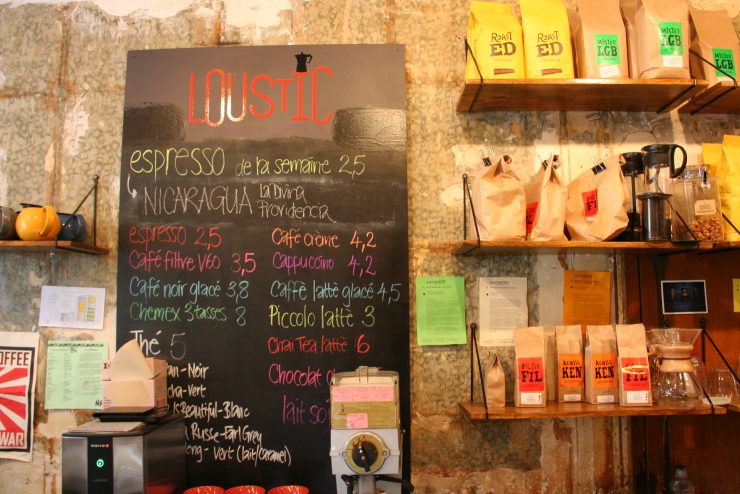
Nowadays, Cafe Loustic continues to serve Caffènation regularly, but also has brought in guest roasters like Berlin’s The Barn and Tim Wendelboe. The policy is to select a guest roaster every three months, feature them for a full week and create an event out of it. “I want to showcase these coffees to a Parisian public that would otherwise have no access to them. It is refreshing to have a change from time to time, and customers love something new, and/or legendary,” says Galhenagé.
“Our experience shows that Paris has a vital role to play in the development of the specialty coffee scene, quite simply because Paris is a gastronomic brand,” says Galhenagé, pointing out that this may explain the amount of press the Parisian scene has gotten in places like the New York Times. “Paris has a mythical reputation for its style of cafe and coffee.”
Choosing a variety of roasters also allows for a mutually beneficial relationship; the cafe gets something new and different, and the roaster gets the chance for exposure on the Parisian market. “I have chosen roasters with whom we can have a true exchange, beyond just the basic purchase of coffee,” says Nicolas Piégay, owner of KB Cafe. “We put in place a relationship that’s mutually beneficial, and that’s really enriching and stimulating.”
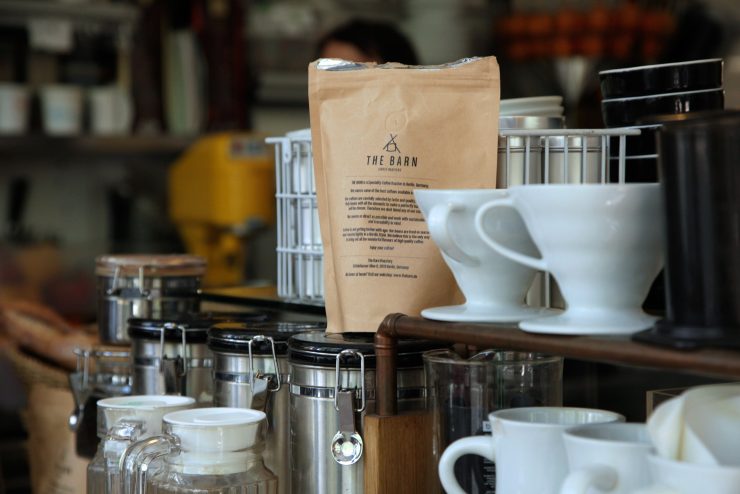
Opening in 2010, KB Cafe worked for a long time with local roaster Café Lomi, and then in the fall of 2013, started branching out, working with London roasters like Climpson & Sons, Square Mile, and Notes, Norway’s Kaffa, and Germany’s Five Elephant and The Barn.
“In all specialty coffee shops, on average coffees change every three months, no matter what. To also change the roaster [and not just the type of coffee] is the opportunity to discover a different savoir faire or to be reminded of good memories from coming across the roaster in another coffee shop or during a trip,” says Piégay.
Whether they’re serving coffee roasted locally or beans from somewhere else, the specialty coffee scene has definitely come into its own in Paris. “Today in Paris, the number of specialty coffee shops and roasters is small, but they are all very sharp,” says Piégay. He points out that the problem with Paris isn’t an absence of high-end quality, but a lingering dominance of the mediocre. So while the specialty scene is growing in Paris, it’s still dealing with that “bad coffee” reputation—but when it comes to specialty, Paris is well-positioned to be a leader, both for its skill and for its general global culinary reputation.
“The Paris coffee scene is far better than people give it credit for,” says Galhenagé, “The local professionals have a great deal of knowledge and use great equipment and roasts.”
They’re just under a little more scrutiny than other evolving coffee scenes, he continues. “We are under far more pressure to succeed than other countries because France and Paris are gastronomic brands, unlike any other city or country in the world.”
Anna Brones is a Sprudge.com staff writer based in Paris, the founder of Foodie Underground, and the co-author of Fika: The Art Of The Swedish Coffee Break, available now from Ten Speed Press. Read more Anna Brones on Sprudge.




